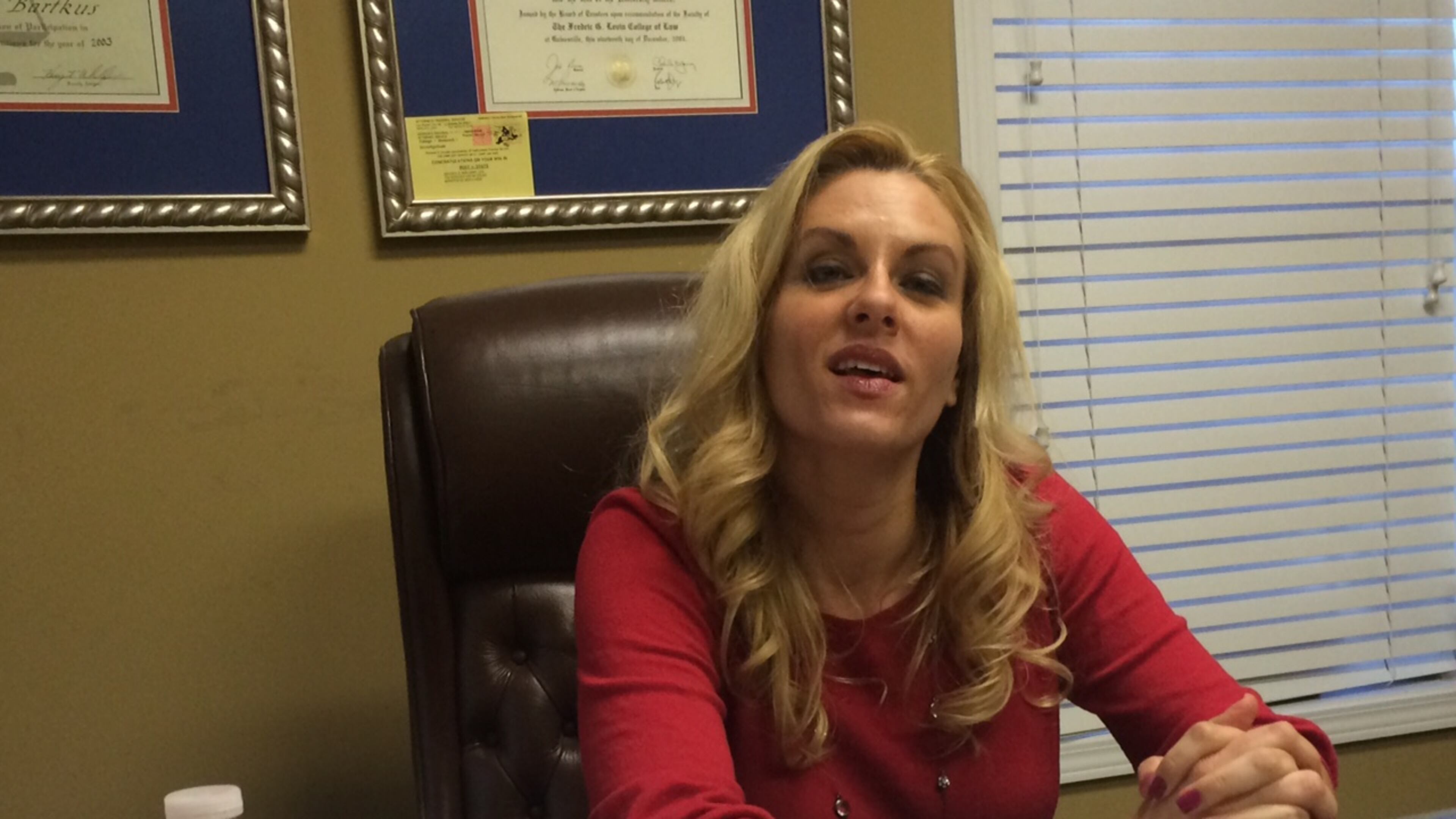Justices consider public’s right to copy court recordings

The Georgia Supreme Court on Monday heard arguments as to whether members of the public may obtain copies of audio recordings of trials and hearings made by a court stenographer.
The case involves a lawsuit against Douglas County Chief Judge David Emerson and his court reporter Melinda Cantrell, who like most stenographers records court proceedings to aid in her transcriptions. The suit stems from cases tried before the judge by criminal defense attorney Ashleigh Merchant in 2015.
Merchant said her law firm wants recordings from two trials before Emerson in 2015. One was a racketeering case in which she said the judge became angry and hostile toward her and the other was a murder case in which Emerson addressed her in a condescending manner.
“You can’t tell his demeanor and tone in a cold transcript,” she said. “That just doesn’t come across.”
Merchant and her husband and law partner, John Merchant, asked Cantrell for a copy of her recordings. Cantrell deferred to Judge Emerson. After Emerson gave the Merchants the opportunity to listen to the audio recordings but refused to let them make copies, the Merchants filed suit.
During Monday’s arguments, Justices David Nahmias and Nels Peterson indicated there appears to be no question that the audio recordings are official court records. But a 1992 state Supreme Court ruling on the issue merely says such recordings are open to “public inspection,” and inspecting a recording doesn’t necessarily mean you can duplicate it, the justices said.
“The right to inspect would be valueless without the right to make copies,” John Merchant responded. He added that no motion had been made to place the recordings under seal and, during the hearings in question, anyone had the right to walk into the courtroom and listen to what was going on.
State attorney Russell Willard, who argued on Emerson’s behalf, said the case is not about the denial of court records because the Merchants can get official transcripts of the proceedings in question. Willard also contended the Merchants didn’t file a proper motion before Emerson to obtain a copy of the recordings.
The court’s ruling, which is of interest to the media, is expected in the coming months.
The state high court will soon hear arguments in a similar case involving the popular "Undisclosed" podcast, which is seeking access to a court reporter's recordings of a 2001 trial in Floyd County. (The first season of The Atlanta Journal-Constitution's "Breakdown" podcast relied heavily on court reporters' recordings of a trial in Haralson County and a subsequent court hearing in Telfair County.)
The Georgia First Amendment Foundation filed a legal brief before the state Supreme Court in support of the Merchants’ position.
The court recordings case took on an unusual twist Monday because Emerson himself recently sat as a substitute justice in a high-profile case involving the state's tax credit scholarship program. Emerson replaced a justice who recused himself from the scholarship arguments.
This meant Emerson was sitting as a colleague to the court’s justices on Jan. 23, just weeks before the justices heard arguments on a lawsuit in which Emerson was a defendant.
State Supreme Court spokeswoman Jane Hansen said the court keeps a list of judges who volunteer to sit in place of justices who withdraw from cases. Emerson was picked to hear the tax credit case because his name was next in line on a list kept by the Clerk’s Office. The court screens visiting judges for potential conflicts, but only those involving cases they’re hearing at the time, she said.
As for the court’s justices, Hansen said, “Regardless of whether they know a judge, they call it as they see it, based on the law.”
The fact that Emerson recently sat on the same court that’s now hearing a case in which he’s a defendant is “probably not legally assailable,” University of Georgia law professor Ron Carlson said.
“But does it look to John Q. Public to be a questionable situation?” Carlson asked. “It’s probably a good idea in the future to separate a guest judge’s appearance on the court from the time a case is coming up where he’s an actual defendant.”
THE STORY SO FAR
Earlier: Two lawyers are suing for copies of audio recordings made by a court stenographer.
The latest: While two justices indicated there appears to be no question that the recordings are official court records, a 1992 state Supreme Court ruling merely says such recordings are open to "public inspection."
What's next: The justices are expected to rule in the coming months.


